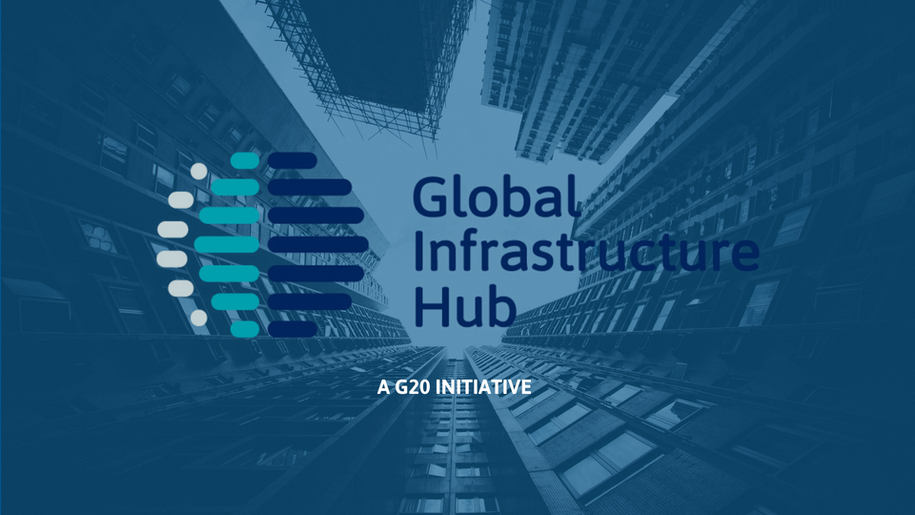816 results found
Featured results



More results
How can governments deliver quality infrastructure outcomes?

The Global Infrastructure Hub (GI Hub) has released a new reference tool to help governments lay the foundations for strengthening project preparation processes and capacities in order to prepare bankable and sustainable projects—a prerequisite for tackling the substantial global infrastructure gap.



The reference tool on Governmental Processes Facilitating Infrastructure Project Preparation closely examines the relationships between countries institutional arrangements for project preparation, funding programs, project identification, feasibility studies and project structuring, through the lens of country-level governance and implementation. This initiative closely aligns with the G20 Principles for Project Preparation endorsed by the G20 Leaders in November 2018.


The circular economy is now core policy for a growing number of countries with leadership from Finland, the European Union and Canada, but it is also taking a strong hold in Asia as Japan and China implement circular economic policies to transition them to a sustainable inclusive future.
InfraChallenge is an innovation competition aiming to accelerate the global infrastructure industry. We are looking for the next digital solution to help solve one of the big infrastructure issues globally. Here are the top 5 reasons to enter.
Contractual disagreements and disputes are common in PPPs during both construction and operational periods.
Infrastructure projects in the Netherlands, such as the construction of roads, bridges and tunnels, have become larger and more complex in recent years. This thesis is about these kinds of infrastructure projects, about the challenges and tensions that go with them, about how people experience them and how they look jointly for solutions, and how they succeed or sometimes fail.

For this year s edition, we reached out to more than 10,000 people in 10 major global cities to ask about their everyday experiences with infrastructure services. How satisfied and safe do they feel with their roads and bridges, rail services and utilities? How engaged are they in the decision-making processes for new projects that can improve lifestyles and drive new economic growth?

Public-private partnership (PPP) contracts are long-term and they may have a duration of 20 to 30 years or more. Today, where technologies and social priorities (such as views on climate change and sustainability) are changing at an accelerated pace, it perhaps comes as no surprise that changes to PPP contracts through renegotiations are common.
As 2018 comes to a close, we would like to take this opportunity to thank you for your support this past year. The Global Infrastructure Hub (GI Hub) had an ambitious agenda for 2018 and we are pleased to say that, with the help of our partners and stakeholders, we have been able to achieve some important milestones.
One of the primary responsibilities of governments the world over is to provide public services to their citizens, including through infrastructure projects. However, governments are often faced with limited resources, constraining their ability to finance and deliver infrastructure on their own. Thus, it is often necessary to invite a private sector party to jointly provide the services in partnership with the public sector.
With a people-centred vision, the Argentine G20 Presidency placed sustainable development at the forefront of the G20 agenda in 2018, under the theme Building consensus for fair and sustainable development .

Transferring risk to the private sector in a PPP contract is frequently referred to as a key part of a PPP arrangement, as well as a key reason why governments use such an approach to procure infrastructure.


The GI Hub welcomes the commitment from the G20 Leaders in addressing the infrastructure financing gap and encouraging more private sector investment.
This paper is a collaboration between the World Bank’s Transport Global Practice, the World Bank’s Energy Sector Management Assistance Program (ESMAP) and the International Association of Public Transport (UITP) to assemble evidence, viewpoints, and analysis on eMobility programs.

Private partner profit motives are frequently cited as a failure of the public-private partnership (PPP) approach. But those profit motives are also part of the fundamental make up of the PPP approach and why it has the potential to deliver better outcomes for the public.
By their very nature as long-term large infrastructure projects, public-private partnership (PPP) projects involve a vast array of interconnecting relationships. Core to any PPP project is the long-term contractual relationship between the government’s procuring authority and the private party (the project company). This is one of many relationships that will affect the success of a PPP.
Disputes in public-private partnerships (PPPs) globally involving key performance indicators (KPIs) represent 20 per cent of all disputes, as highlighted in our data using a representative sample of projects from around the world.
This G20 Eminent Persons Group on Global Financial Governance report recommends reforms to the global financial architecture and governance of the system of International Financial Institutions (IFIs), aiming to promote economic stability and sustainable growth and consider how the G20 could better provide continued leadership and support for these goals.





 Project Preparation
Project Preparation











